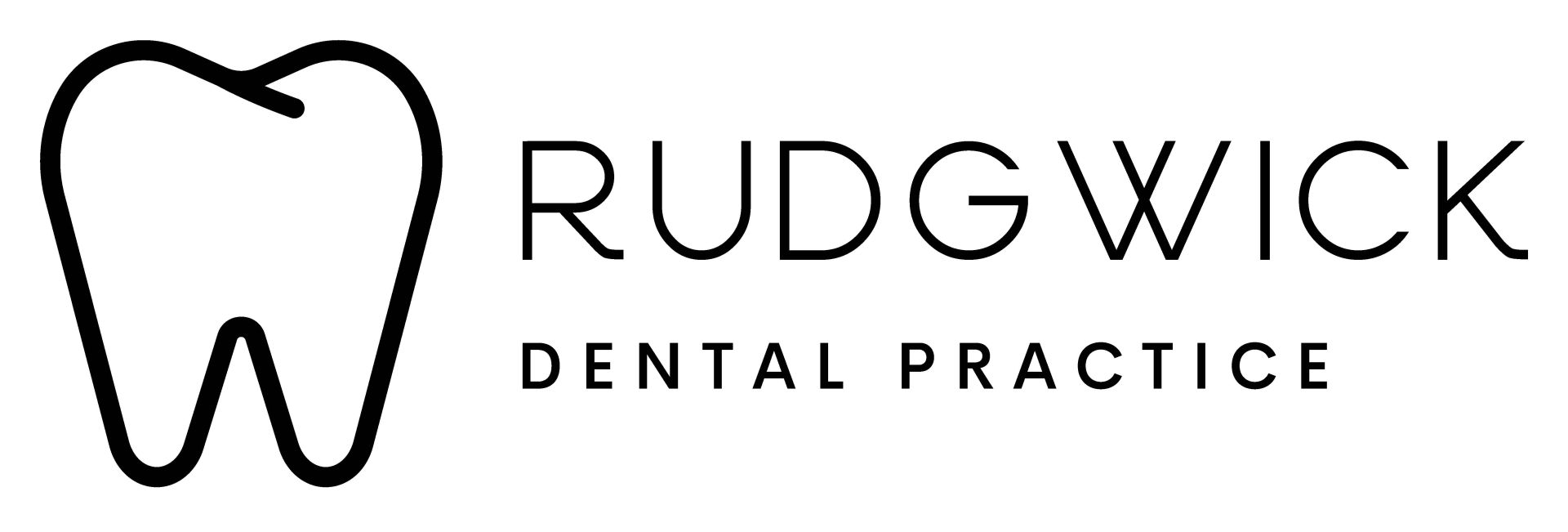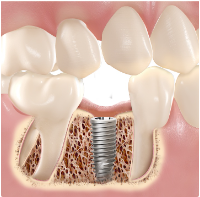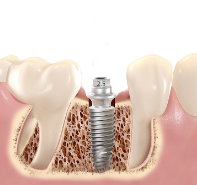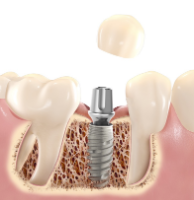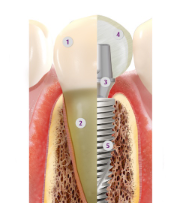Dental implants are a “fixed” option to replace missing teeth and are a popular alternative to removable dentures and plates. They can be used to:
- Support a crown to replace a missing tooth
- Support a bridge to replace numerous missing teeth
- Or help retain a denture that is otherwise too loose
The treatment option has come a long way since it’s introduction and with the advancements of technology it is becoming increasingly simple and predictable.
The implants are screw-like structures made from titanium, a metal that is “biocompatible” with the body. This allows it to fuse directly into the jaw bone and other tissues to give a natural result.
It is widely seen as the best option for a missing tooth however it’s longevity is dependant on a healthy mouth. Lack of care for your implant can result in gum disease around the implant, causing it to loosen out of the bone. As such it requires life long care and maintenance including good oral hygiene, regular check-ups and hygienist visits.
Think of it like buying a a car!
